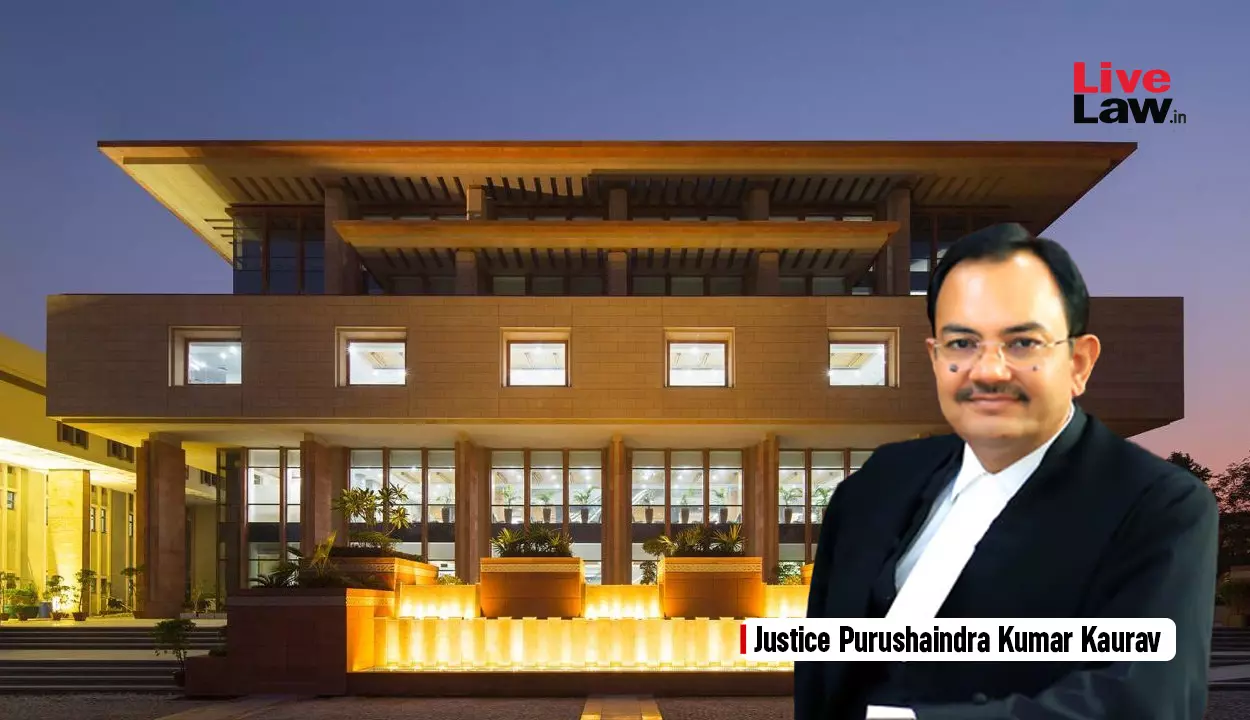- Home
- /
- High Courts
- /
- Delhi High Court
- /
- Indian Courts Not Barred From...
Indian Courts Not Barred From Executing Foreign Decree Pending Enforcement Abroad, Parallel Execution Is Permissible: Delhi High Court
LIVELAW NEWS NETWORK
30 Sept 2025 2:55 PM IST
The Delhi High Court has made it clear that parallel enforcement of a foreign decree is permissible under Section 44A CPC i.e., when the decree is being executed both in the cause country (where decree was passed) and in India.Section 44A(1) of CPC enables a foreign decree, rendered by a superior Court in a reciprocating territory, to be executed in India as if it were passed by a District...
The Delhi High Court has made it clear that parallel enforcement of a foreign decree is permissible under Section 44A CPC i.e., when the decree is being executed both in the cause country (where decree was passed) and in India.
Section 44A(1) of CPC enables a foreign decree, rendered by a superior Court in a reciprocating territory, to be executed in India as if it were passed by a District Court in India.
Justice Purushaindra Kumar Kaurav held,
“The phrase “as if it had been passed by the District Court” enjoins the executing Court to assume, for the purposes of S. 44-A and for other purposes connected with the execution of decrees, "that the District Court had actually passed the decree". As a natural and necessary corollary of the same, the principle of simultaneous execution, as applicable to domestic decrees, would also indiscriminately extend to foreign decrees, especially in light of the conspicuous absence of any bar to the contrary.”
The bench added that Section 44A is grounded in principles of comity and reciprocity, aiming to facilitate cross-border enforcement. “Prohibiting simultaneous execution would allow judgment debtors to dissipate assets in one jurisdiction while proceedings drag on in another, frustrating the decreeholder's rights.”
The Court was dealing with an execution petition moved for enforcement of a decree passed by the Sharjah Federal Court in UAE, directing the Judgment Debtors to pay USD 118,790,452.52 (approximately INR 991 crore as on July 5, 2024, when the EP was filed) to the Decree Holder.
Since the Judgment Debtors held movable and immovable assets in India, the Decree Holder sought enforcement here.
The Judgement Debtor opposed the petition, citing pendency of execution proceedings in the cause country, i.e., the UAE. It was argued that simultaneous execution in India is impermissible under law.
The Decree Holder on the other hand submitted that Indian Courts have repeatedly upheld the right to pursue parallel enforcement in multiple jurisdictions, particularly where the judgment debtor has assets in more than one location.
The High Court in its prologue remarked, “attaining a decree only proves to be less than half the battle won…real struggle of a decree holder begins after obtaining the decree…unreasonable delay in the execution of decrees just leaves the decree-holder devoid of its efforts, which are put in for attaining a decree.”
Coming to the legal question, it held that in light of the express permissibility of simultaneous execution of domestic decrees, the legislature ought to have expressly prohibited the same for foreign decrees if such was the intent.
“In the absence of any such prohibition, it would be impermissible for the Court to curtail a crucial procedural right. It would not only be contrary to the principles of comity of Courts, which are meant to ensure that reciprocal decrees are duly enforced, but also to the basic principle of procedural interpretation, which requires the Court to infer in favour of permissibility of an act, when it is not explicitly made impermissible in the realm of procedure,” it said.
Reliance was placed on Prem Lata Agarwal v. Lakshman Prasad Gupta (1970) where the Supreme Court recognized the right to simultaneous execution, emphasizing the absence of any statutory bar when assets are dispersed across jurisdictions.
Similarly, in Cholamandalam Investment & Finance Co. Ltd. v. CEC Ltd (1995), the Delhi High Court explicitly held that no CPC provision prohibits simultaneous execution by two Courts.
Similarly, the Madras High Court in Sheik Ali v. Sheik Mohamed (1996) held that Section 44A CPC implicitly allows for simultaneous execution in multiple jurisdictions, being reciprocating territories, as there is no express prohibition against it.
“The absence of any provision in Order 21 Rule 11(2), Clause (f) or elsewhere in the CPC, suggesting a bar to simultaneous execution further supports this position,” the Court held and allowed the execution proceedings to proceed in accordance with law.
Appearance: Mr. Dayan Krishnan, Sr. Adv. with Mr. Ashim Sood, Mr. Dhiraj Kumar, Mr. Raghav Seth, Ms. Aditi Bhansali, Ms. Dhriti Batra, Ms. Mridula Dixit and Mr Akilesh Menezes, Advs. for Decree Holder; Ms. Nandini Gore with Ms. Sonia Nigam, Mr. Dinkar Kumar, Mr. Mohd. Shahyan Khan and Mr. Akarsh Sharma, Advocates for JD 3 & 4. Mr. Satvik Varma, Sr. Advocate with Mr. Shantanu Parmar, Mr. Deepak Agarwal and Mr. Balram, Advocates for JD 5 to 15
Case title: BNP Paribas Suisse SA v. Ashok Kumar Goel & Ors.
Citation: 2025 LiveLaw (Del) 1224
Case no.: EX.P. 64/2024



